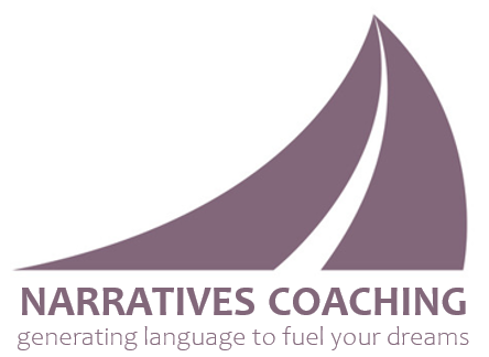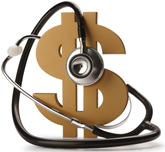A Finance-based Metaphor for Recovery
An interesting way to look at recovery is through the eyes of our finances. When I came into the program, I was not only broke, but I was also seriously in debt with no hope of ever finding a way out of the deep hole I’d dug. I’d become accustomed to spending every penny I earned (or stole) on drugs and alcohol, then using whatever was left over for food and shelter. I used whatever credit cards a bank was foolish enough to give me to further fund my dysfunctional lifestyle. I begged, borrowed or stole whatever was necessary to maintain enough of a buzz that I didn’t have to feel the pain in my life. My finances were but one of the heavy rocks holding me in slavery to my addictions – when added to my defects and shortcomings (selfishness, shame, arrogance, anger, denial, resentment, and bitterness), I was convinced I was doomed to die miserably, and most of my days were spent simply waiting for that to happen. There was no way I could ever get sober, let alone dig my way out of the deep holes I’d dug.
But AA promised a solution, and a way out of my hopelessness and despair. One step at a time, the weight of despair began to lift and darkness slowly turned to light; one day at a time, as I made small bits of progress, hopelessness slowly turned into hopefulness. I was learning how to move from emotional and spiritual bankruptcy to the first hints of recovery solvency. And, as I continued, I began banking small amounts of recovery experience which grew over time into capital I could use to invest in others. By making daily investments in my recovery, my reserves grew and I had more freedom to move about my life without fear, growing daily in confidence but without the arrogance I carried when I was using.
AA gave me, for the first time in my life, a sense of hope that all my messes could be cleaned up – my ruined relationships could be restored, my abysmal finances could be recovered, and my bitterness and hatred could be healed. Yes, it took time, and yes, it was hard, and yes, it required leaps of faith, but the program worked and I got my life back. Today, my finances are healthy and expertly managed – I’m free from debt and have significant reserves from which to draw when I have an opportunity to serve. I’m not talking about money (although that’s also in excellent working order), I’m talking about my spiritual, emotional, relational and physical finances and, despite having many days of sobriety, it’s this blessing of recovery that I cherish and into which I continue to make deposits. Like my financial bank accounts, when I stop making deposits, the accounts stop growing and it doesn’t take long for them to become overdrawn. Every day is another opportunity to invest in my recovery and keep my accounts filled. I call this my Recovery Bank.
I love the similarities in thought and action between managing our finances and managing our recovery – make frequent deposits, invest, manage debt, make more than you spend, know what things cost, etc. Another way to analogize this is by thinking in terms of capital.
The word capital in a financial context is defined as: wealth in the form of money or other assets owned by a person or organization or available for a particular purpose such as starting a company or investing. An example would be “rates of return on invested capital were high”. In a recovery context, the definition is: the complete set of all assets and resources available to support and grow your recovery from a substance use or process use (behavioral) disorder or addiction. An example would be “his chances were good, as he had significant recovery capital”.
Recovery Capital
A term that’s emerged over the past decade or so is “Recovery Capital”. William White, Emeritus Senior Research Consultant at Chestnut Health Systems, defines Recovery Capital as “the breadth and depth of internal and external resources that can be drawn upon to initiate and sustain recovery…” – his article on Recovery Capital can be found here. To extend the recovery finances metaphor, your financial capital is the set of all financial assets and resources available to fund and invest in your goals and expand and grow your life according to your plans, desires and dreams.
Likewise, your Recovery Capital is the complete set of all assets and resources available to support and grow your recovery from a substance use or process use (behavioral) disorder or addiction. This includes (but is not limited to): healthcare and health insurance, treatment options (in-patient or out-patient), medication-assisted treatment, financial resources, safe and habitable shelter, transportation to get to and from appointments and support meetings, one’s physician and other medical professionals (i.e., counselors, therapists), support groups and peer-based support meetings, peers in recovery, family and friends, supportive employers, sponsors and recovery coaches, and faith-based supports. Add to this the recoveree’s personal abilities, skills, knowledge, education, self-esteem, and ability to navigate challenging situations, solve problems and set and achieve goals.
A recoveree’s access to expansive recovery capital can be the difference between success and failure; because addictions impact all aspects of a person’s life, it’s paramount we take a holistic view of their needs and provide the necessary capital to help them succeed.
Tips for Managing Your Recovery Bank
- Take stock periodically and know what assets and resources you have at your disposal; like any healthy business, it’s important to know what you have in your recovery inventory – what’s of high value, low value, or no value (get rid of it) – what do you need that you don’t yet have? How are you sharing your high value assets with someone else in recovery?
- Maintain a strong sense of how much you’re investing in your recovery – is it enough or are you shorting yourself – are you doing the bare minimum to get by (you can tell because you’ll not be moving forward or reaching goals)? Are your investments paying dividends, experienced as achieving your goals, reaching milestones and enjoying the benefits of recovery? Are you also investing in the recovery of another recoveree?
- Are you expanding your recovery capital, increasing your supports, and making consistent deposits into your recovery bank? Are your accounts (experiences) expanding and growing? Who else if benefitting from your ever-expanding capital reserves?
- Are you in debt and overdrawn on any of your accounts? Are you working too much and not striking the necessary balance between making a living and taking care of yourself? Are you getting enough rest? Are you spending enough time with others in your recovery network, and with family and friends? Do you feel like you’re running on empty or running out of gas?
Sources of Recovery Capital
Know your recovery capital – know all your assets and resources – everything upon which you can draw and rely upon to support your journey. Below are categories originally proposed by William White in his document on Recovery Capital (not an exhaustive list):
- personal recovery capital
- health, healthcare, financial resources, clothing, food, safe and habitable shelter, and transportation
- personal abilities, skills, knowledge, education, self-esteem, and ability to navigate challenging situations, solve problems and set and achieve goals
- family/social recovery capital
- relationships with friends and family, people in recovery, and supportive partners
- availability of recovery-related social events
- community recovery capital
- attitudes, policies, and resources specifically related to helping individuals resolve substance use disorders
- Recovery activism and advocacy – full range of treatment resources
- Peer-led support & recovery community organizations (RCO), employee assistance programs, and drug courts
- cultural capital
- an individual’s cultural and faith-based beliefs, such as resources for Native Americans, and people of faith


Thank you for sharing your story and for writing this post – I pray that 1,000’s of others benefit from the wisdom bestowed in this post – This is real world stuff – I think most people don’t know the tremendous benefit they could gain from just one single AA meeting – I think the misconception is that AA is just for addicts but, we’re all addicted to something and we need to eliminate our addictions to fund our “capital” – Thanks again for your wisdom and insight!
Thank you Russell! Although it can be difficult to establish as a habit, the concept of investing in yourself and making deposits that pay dividends forward is really simple; the interesting observation is that few can do this effectively (practice and develop the habit) under their own power – these positive life skills are always best developed in relationship with others on the same path. Love you brother!